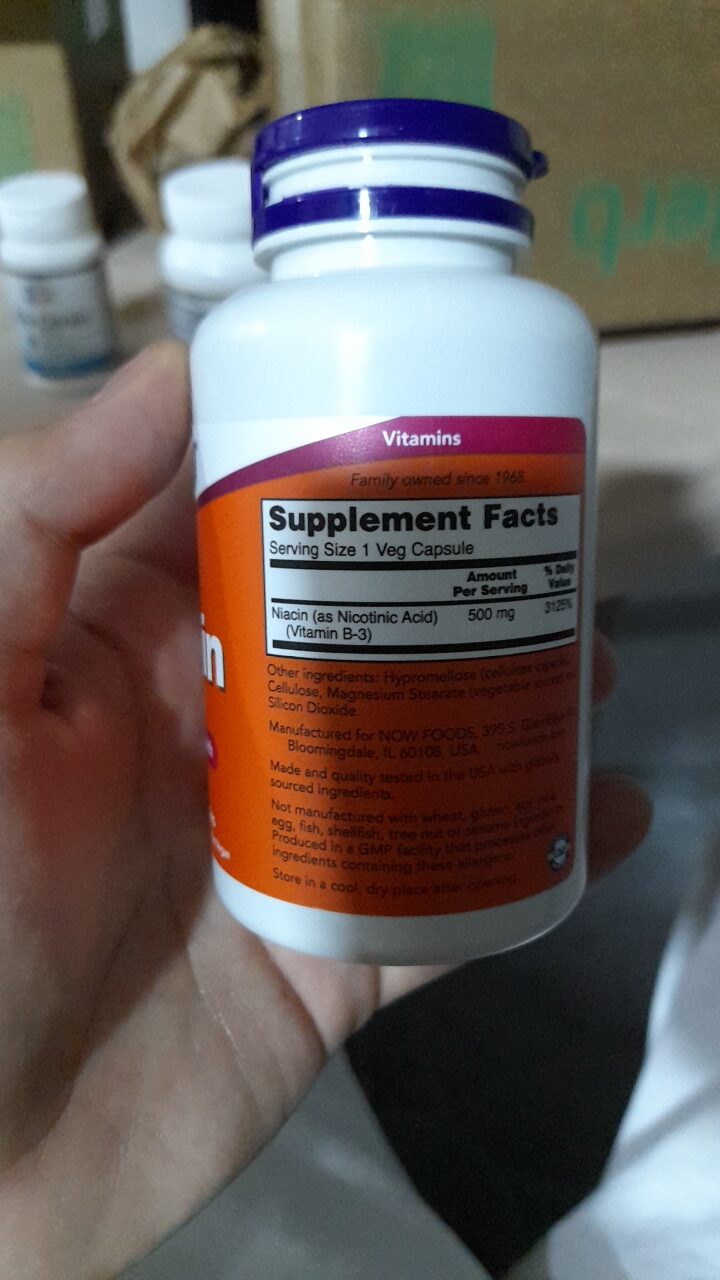
Barcode: 733739004819
niacin (as nicotinic acid) (vitamin b-3)
HALAL
📝 Reason: The product is considered Halal as it does not contain any Haram ingredients. Niacin, hypromellose, cellulose, and silicon dioxide are all Halal. Magnesium stearate is marked as Doubtful due to potential animal derivation, but does not affect the overall Halal status as it is not confirmed to be Haram. Islamic dietary laws permit consumption of Halal and doubtful items when Haram is not confirmed.
🏷️ Category: Vitamins
📄 Certificates: Family Owned Since 1968, Serving Size 1 Veg Capsule, Vegetarisch, Vegan
Ingredients:
Details
Understanding the Halal Status of Niacin (Vitamin B-3)
Niacin, known as vitamin B-3, is an essential vitamin that supports various bodily functions, including metabolism and energy production. Many health-conscious individuals may wonder about the Halal status of this product, particularly if they follow Islamic dietary laws. This article will explore whether Niacin (as Nicotinic Acid) is Halal and dive into its ingredients in detail.
Halal Status Overview
The overall Halal status of Niacin (Vitamin B-3) is confirmed as Halal. The primary ingredients include niacin (as nicotinic acid), hypromellose, cellulose, magnesium stearate, and silicon dioxide. Each of these components plays a role in the formulation, and we’ll examine their Halal status further.
Ingredients Breakdown
1. Niacin (as Nicotinic Acid)
Niacin is a vitamin that is vital for human health. It is generally recognized as Halal since it does not derive from animal sources and is vital for metabolic processes. For more information, refer to IslamicFinder.
2. Hypromellose
Hypromellose is a synthetic polymer used mainly as a thickener and film-forming agent. It is considered Halal as it does not contain any animal-derived ingredients. More about Hypromellose’s Halal status can be found at Halal Monitor.
3. Cellulose
Cellulose is a plant-based ingredient often used as a texturing agent. As a naturally occurring substance, cellulose is unequivocally Halal. For additional insights, you can read about its status at Halal Monitor.
4. Magnesium Stearate
Magnesium stearate is a commonly used excipient in dietary supplements. It has a doubtful Halal status because it may come from either animal or plant sources. Unless its animal origin is explicitly confirmed, it falls into the category of doubtful ingredients according to Islamic dietary laws. Thus, it does not necessarily make the product Haram. For a detailed explanation, visit Halal Monitor.
5. Silicon Dioxide
Silicon dioxide is a naturally occurring mineral widely used as an anti-caking agent. It is classified as Halal, making it suitable for consumption under Islamic law. For further verification, check out Halal Monitor.
Conclusion: Is Niacin (Vitamin B-3) Suitable for Halal Consumers?
In conclusion, Niacin (as Nicotinic Acid) is considered Halal, making it a safe choice for those who adhere to Islamic dietary laws. While magnesium stearate presents a potential concern due to its doubtful status, the other ingredients are firmly established as Halal. Islamic dietary guidelines permit the consumption of Halal and doubtful items when no Haram alternatives are present. Thus, individuals seeking a Vitamin B-3 supplement can confidently include this product in their diet.
Certifications and Brand Context
This Niacin product comes from a brand dedicated to health and wellness, being family-owned since 1968. It is suitable for vegetarian and vegan diets and offers a serving size of one vegetable capsule. By understanding the ingredients and their Halal status, health-conscious consumers can make informed decisions that align with their values.
